Please note that this is an on-going project.
Project Description
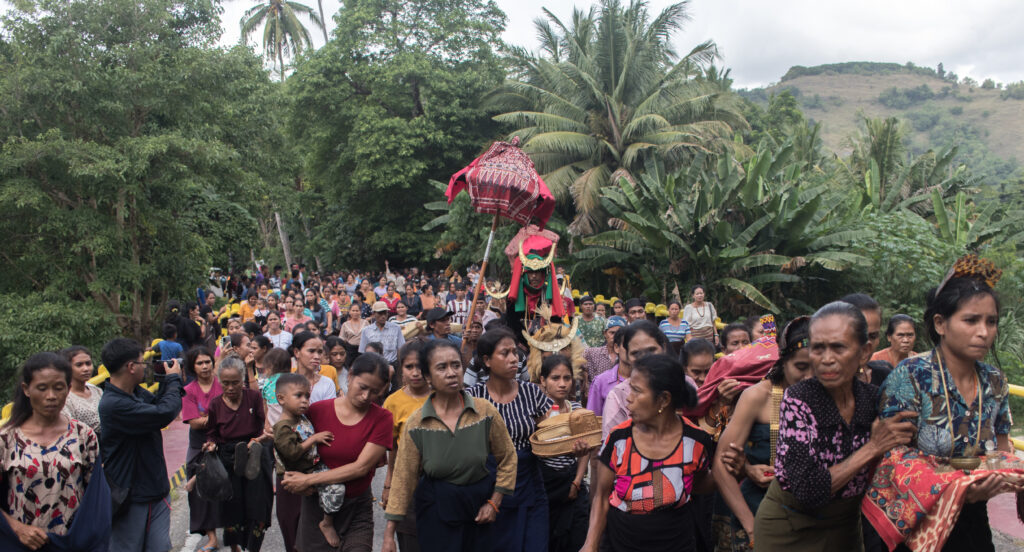
This research partnership aims to advance educational inclusion, social awareness, and cultural recognition of the Marapu Indigenous cultural and religious minority group of Sumba Island, Indonesia. Through cultural documentation, participatory action research, and cultural sustainability initiatives, it works with Indigenous Marapu religion practitioners to advance social and cultural goals and increase the visibility of Marapu people, culture and religion within Sumba, nationally and internationally.
Marapu cultural practices are jeopardised by social, political, and educational marginalization. In 2019, the project Revitalizing Traditional Marapu Cultural Assets used a conceptual framework from the Oxford University Press book Music Endangerment (Catherine Grant, 2014) to gauge the viability of thirteen musical and five ritual practices. Led by Marapu representatives and Joseph Lamont, a Sumba-based development practitioner, the project included Griffith University researcher Catherine Grant as international advisor. The findings informed educational initiatives, workshops, performances, audio-visual recordings, and other revitalization activities.
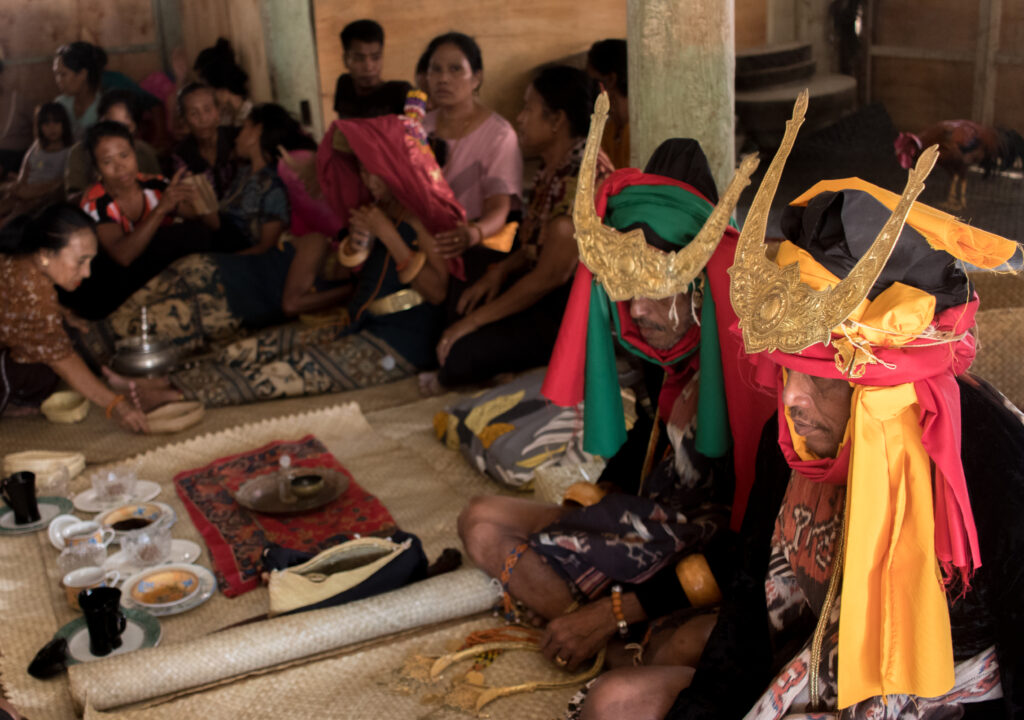
This partnership continued in 2021–2023 with the project Lii Marapu (The Marapu Way). Delivered by Marungga Foundation and partners, this two-year initiative sought to increase Marapu people’s access to education and social services by fostering political participation. It centered intangible cultural practices integral to Marapu religion and identity. Grant also consulted, and Lamont was a co-designer and key project team member.
The partnership continues through Lamont’s PhD project (2025+) under Grant’s supervision, which seeks to co-create (with Marapu people) an accessible digital archive of Marapu cultural resources for educational use, community strengthening, and public awareness.
Project Personnel and Beneficiaries
This project is a partnership between (1) the Marapu Governing Body; (2) Marungga Foundation (Indonesia); and (3) Griffith University. The NGO Sumba Integrated Development was also instrumental in the first phase.
Marungga Foundation is a community-based non-profit advancing development in East Nusa Tenggara, Indonesia. It aims to build local capacity and foster resilient communities through adaptive approaches to change. It strengthens cultural values and resources in education, health, livelihoods, and human rights using participatory action research. It is committed to cultural rights and sustainability to promote equity for marginalised groups.
Its work is guided by the UN’s SDGs and cultural rights, including the right to practice culture without discrimination. Its approach aligns with the community-engaged, socially oriented vision of Griffith University’s Creative Arts Research Institute (CARI).
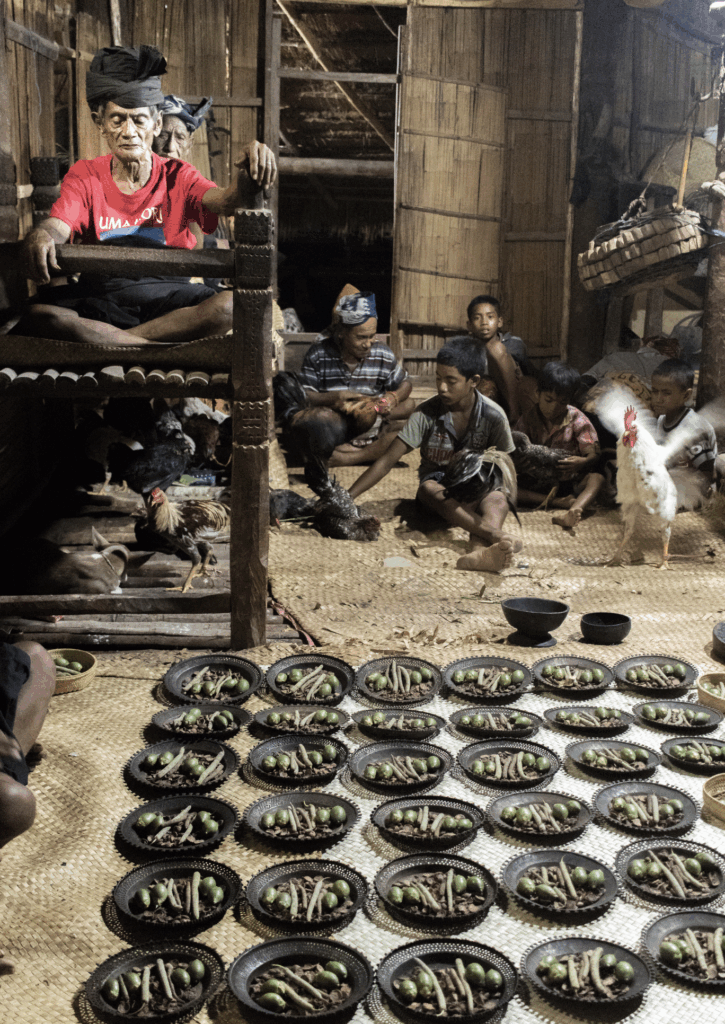
![]()
![]()
Outcomes to Date
This partnership has produced creative and traditional research outputs that advance knowledge of Marapu cultural practices, present strategies for integration into curricula, and promote awareness of Indigenous cultural and religious minorities in Indonesia. Outputs include collaboratively authored publications, conference presentations, and media pieces.
The next phase (Lamont’s doctoral project) will deliver a trilingual “Cultural Commons”: digital educational resources on Marapu practices, in Kamberan, Indonesian, and English. A workshop will introduce the Commons to East Sumba teachers, aligned with Indonesia’s new inclusive curriculum. The Commons will also serve as a global resource and model for similar initiatives.
Future plans, as determined by the Marapu people, include educational tools, student exchanges, exhibitions, artist residencies in Sumba/Brisbane, and creative activations of Marapu cultural heritage in Indonesia and Australia.
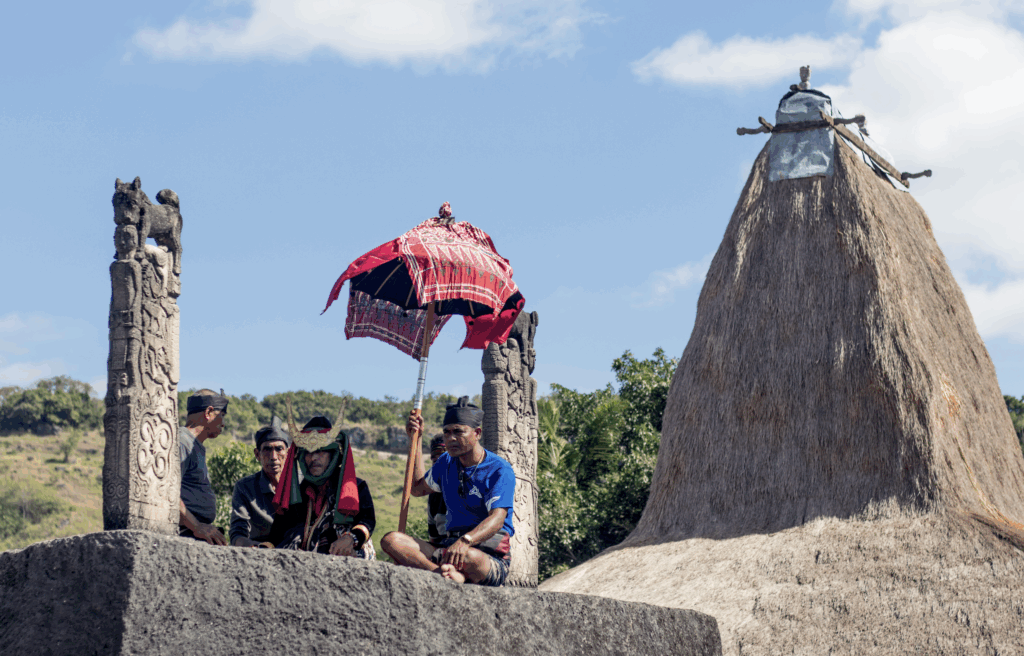
Project Significance
Via the organisational partners and team members, this project represents a robust foundation of people-to-people and institutional links between Australia and Indonesia. It broadens and deepens these bilateral relationships by stimulating the sharing of knowledge, expertise, and skills in the educational, cultural, research, and development sectors.
The partnership employs a meaningful, culturally safe, “slow” co-design process in which discussions are self-determined and community-led, relationality is foregrounded, individual and collective rights are balanced, and culturally grounded ethical principles are upheld. Marapu people stand to benefit from the research process and outcomes.
Access to Griffith researchers’ expertise is propelling knowledge and dissemination about at-risk Marapu cultural practices and unlocking funding and resources. In turn, these are boosting local capacity to design, deliver, and share quality documentation, workshops, performances, educational resources, and research. As Marungga Foundation advances equity for minority groups, its collaboration with Griffith University is also amplifying its efforts to make Marapu religion and culture more visible at provincial, national, and international levels.
Through visibility and outcomes, the collaboration supports two goals of the Marapu people: (1) to develop Marapu cultural materials and implement them in the formal education system, traditional schools, and other settings; and (2) to develop and make digitally available cultural materials for current and future generations of Marapu adherents. The public materials are also useful to researchers, cultural workers, and other minority communities in Indonesia and beyond.
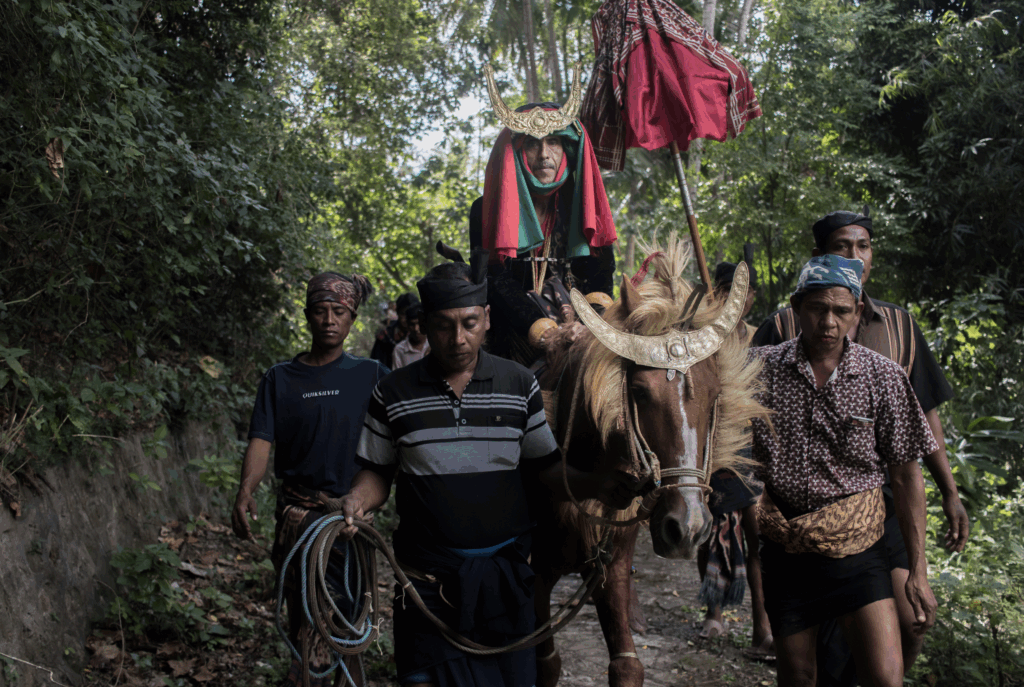
Photos: Marapu living cultural heritage, East Sumba. Photographs courtesy of Joseph Lamont
![]()

